How To Write The Perfect Anti-Hero
We hope you enjoy the article below.
If you are a screenwriter looking to network, learn more about the craft or get feedback and exposure for your own projects,
click here to become a Talentville Resident and join our growing community of screenwriters and Industry professionals.

Article
Viewed by: 7 Residents and 163 Guests

HOW TO WRITE THE PERFECT ANTI-HERO
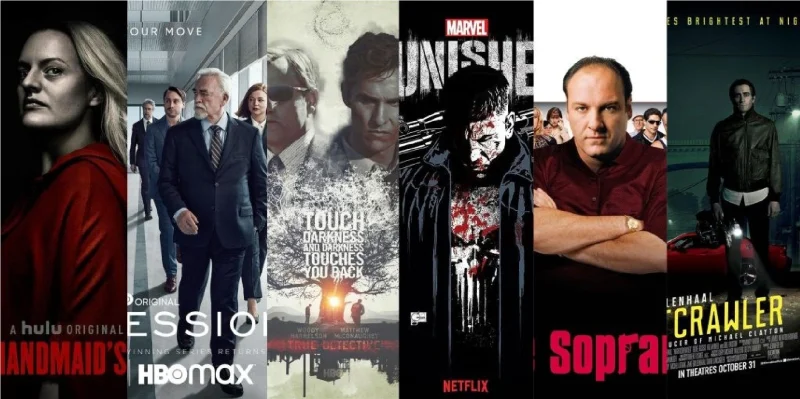
By: Finn Cassidy
Why is it that we just can’t seem to get enough of anti-heroes? Is it that their flaws and complexities make them magnetically relatable? Do we admire their conviction and willingness to do what we will not? Or do we relish the opportunity to vicariously experience our darker impulses?
Regardless of the reason, the surge in popularity of these characters has been immense and I can’t see any signs of it slowing down.
But how exactly do you write your very own anti-hero? Let’s discover how to make the audience fall in love with your spellbinding anti -hero. We’ll explore a variety of examples within popular culture, before delving into the potential journeys that we can take these intricate characters on and how we can push the limits of human empathy.
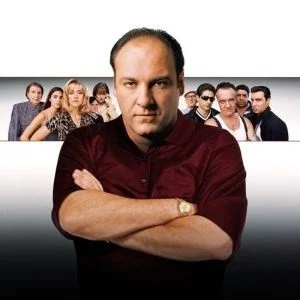
So, what is an Anti-Hero?
An anti-hero is a character in a narrative or drama who lacks the admirable qualities of fortitude, courage, honesty, and decency that are usually possessed by traditional heroes. Despite their flaws, they can carry the role of protagonist and are more and more frequently seen in this role in recent years.
Writing an Anti-Hero
Empathy is at the very core of any great character, and anti -heroes are no different. We don’t need to like these characters or even agree with the choices they make; we simply need to understand the why. Here are a few things to consider when creating your anti-hero:
o We all love a dark and complicated backstory. For anti-heroes, it may be a trauma in their past that causes them to hold a particular philosophical belief, a belief that then underpins them as a person and motivates their actions. One great example is Rust Cohle from True Detective. The death of his daughter and his experiences working undercover with narcotics turned him into a nihilist. While his philosophies are often extreme, they are simply a defense mechanism. Though the audience may not necessarily agree with his point of view, we can understand why he holds such pessimistic beliefs.
o We also need to infuse our characters with some humanity to prevent them from being an outright villain. Tony Soprano is charming and charismatic, he suffers from anxiety and panic attacks, and he faces everyday familial struggles that so many of us can relate to. Right from the start, we see Tony’s humanity with his compassion towards the birds. A tool astutely used by David Chase to demonstrate Tony’s positive qualities, humanizing him to the audience despite his criminality.
o Alternatively, creating a brutal and horrific environment for our characters can go a long way in making an audience understand their actions. June Osborn in The Handmaid’s Tale starts the series as a sympathetic protagonist just trying to survive, but her cruel environment slowly corrupts her. But, because we’ve witnessed the atrocities she’s gone through, we understand her later actions.
o This leads to another common method employed by writers and that is to make everybody worse than our protagonist. In doing so, their few redeemable qualities will stand out.
o Moreover, we can use our character as a vessel with which to ask the audience the following question – Do the ends justify the means? There’s a powerful evil causing pain and torment wherever our anti -heroes go and it’s our character’s mission to defeat them, no matter the cost, and we the audience are rallying right behind them. You’ll be amazed how much you’ll forgo a character’s extreme actions when you’re invested in their goal. Think of Gomorra!
o Lastly, we need complexity. We want our characters to be multi dimensional and internal conflict is a fantastic way to achieve this. Put your characters in moral dilemmas and show their immense turmoil over these decisions. Leave your audience in suspense as they wonder how your character will navigate their fear, guilt, and self-doubt in figuring out the crisis that lies before them.
Character Arcs
Once we’ve created our anti-hero, we then need to consider their arc. Like with any character, there are three primary arcs: Positive, Negative, and Flat.
o Han Solo undergoes a positive arc, he experiences a change in his motivation from initially doing good merely for profit to doing good because it’s the right thing to do.
o Whereas a flat arc often involves a character’s core beliefs being tested throughout the story, ultimately, they stick true to who they are in the end. In the context of the anti-hero, these could be used to complicate the arcs of truer heroes. The Punisher’s introduction in Daredevil Season Two disrupts Daredevil’s sense of morality, making him question whether more drastic means would allow him to achieve his goals.
o A negative arc however has a character slowly become corrupted, disillusioned, or descending into madness. In Taxi Driver it’s clear that Travis is mentally on a knife edge, but once Betsy rejects him Travis spirals into a pit of obsession, paranoia, and violence only achieving some catharsis at the very end.
We now have an understanding of ways we can write an anti-hero and their arcs, how to highlight their humanity in and amongst the grey and the chaos. But what happens when we completely strip our focal character of their morality?
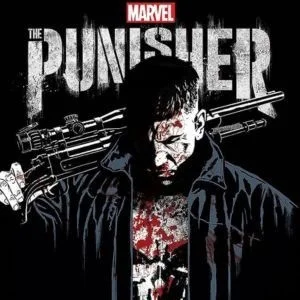
When Heroes Become Villains – The Villain Protagonist
Although the protagonist, Lou Bloom in Nightcrawler is no hero, he starts as a villain and remains that way, constantly going to increasingly greater lengths to pursue his selfish desires. Lou never shows an ounce of remorse, is completely devoid of any empathy or humanity, and is instead fueled solely by his ambition, irrespective of the cost to those around him. So why are our eyes glued to the screen for these kinds of characters? Empathy, fascination, and excitement!
Succession might be the most extreme utilization of the anti-hero we’ve ever seen; each character would be more accurately described as outright villainous, rather than having particularly admirable qualities. The show’s popularity is a clear showcase of how the modern audience is evolving. Even if we acknowledge the masterful writing, it’s unclear whether audiences from days gone by would have bought into a show with not one single redeemable character. But we remain captivated because in and amongst the backstabbing, hypocrisy, and egregious wealth, are flawed, vulnerable characters who are simply reacting to their traumas in real-time. Even through Logan, we’re shown the abuse he suffered as a child.
What I’ve always found most brilliant about the writing of Succession is that we never peer behind the curtain, we never actually see their upbringing. We just infer all the childhood dynamics from the present day, a choice that keeps us constantly intrigued about these characters and glued to their “now” as we watch it unfold.
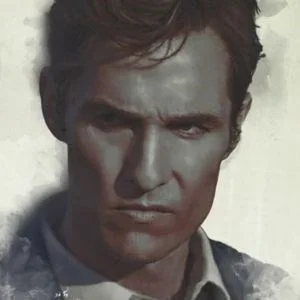
So, why are we so obsessed with Anti-Heroes today?
The stories we tell and the characters within them typically reflect the times that we are in. With trust in powerful longstanding institutions being at an all time low, watching characters rise against the establishment can be rather exciting. I think we admire their impenitence; their stories are often about peeling away a façade and being their true selves and we all envy that courage in some way. We seem to live in an infinitely interconnected world, yet it also feels as if we are more disconnected than ever. Gone are the days when we wanted perfect heroes to aspire to, and instead all we want is someone who’s just a little bit like us.
Anti-heroes in their infinite complexity and their tendency for chaos can invigorate your story with boundless amounts of tension, drama, and humanity as you keep the audience constantly on their toes.
With a greater understanding of all things anti-hero, use this article as a springboard to start crafting your very own morally ambiguous yet utterly captivating protagonist – happy writing!
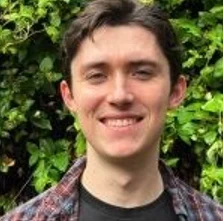
Finn Cassidy is an aspiring screenwriter and editor who loves every aspect of this wonderful industry. Since completing his MA in screenwriting, Finn has worked at Ember Films and is now a reader with Shore Scripts. Other projects include collaborating in the making of short films such as NIGHTMARE and PASSING. Fueled by a fascination for psychology, Finn enjoys writing intimate character-driven stories that pack a deep emotional punch




Comments on How To Write The Perfect Anti-Hero